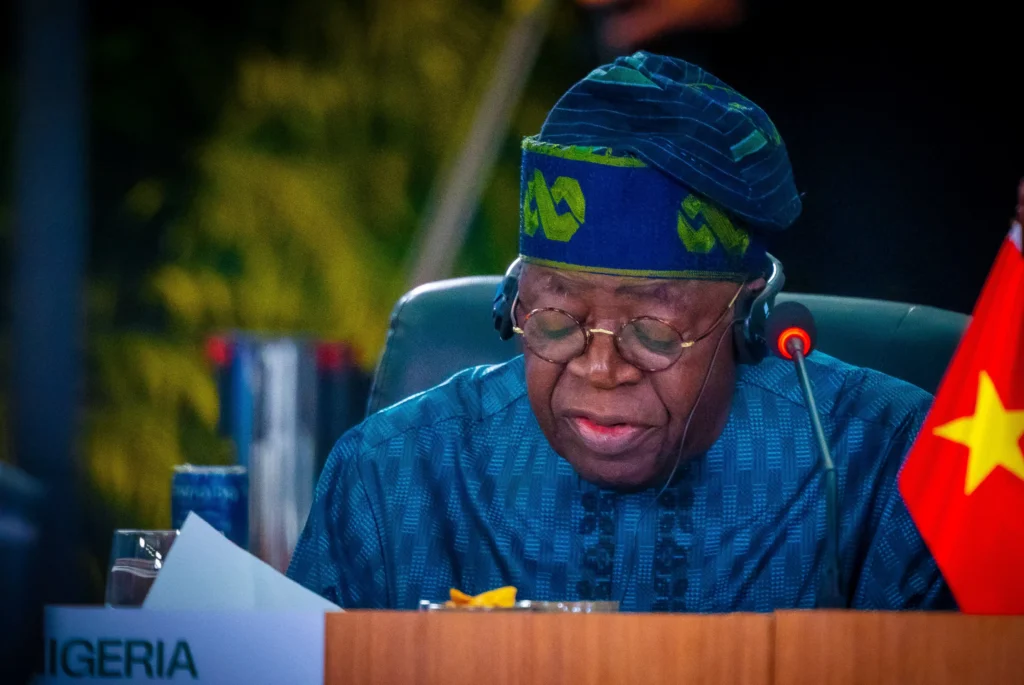Halfway through President Bola Ahmed Tinubu’s tenure, a critical evaluation of his administration’s healthcare reforms reveals a sobering reality: Nigeria’s health sector remains fragile, underfunded, and largely inaccessible for millions. Despite some policy efforts and budgetary promises, the system continues to suffer from long-standing issues such as infrastructure decay, brain drain, low government spending, and poor health outcomes, signaling that much work remains to be done.
Healthcare Under Tinubu: Progress in Policy, But Weak in Delivery
When President Tinubu assumed office in May 2023, he pledged to strengthen Nigeria’s ailing healthcare system through increased funding, public-private partnerships, and expanded access to primary healthcare services. His Renewed Hope Agenda positioned healthcare as a national priority. However, nearly two years into his administration, many of those promises have yet to materialize in meaningful ways for the average Nigerian.
The administration has announced several initiatives—such as a digital health strategy, plans to revamp primary health centers (PHCs), and efforts to enhance local pharmaceutical manufacturing. Yet, implementation has been slow, and the impact on actual service delivery remains minimal. Many rural communities still lack access to qualified medical personnel, while urban hospitals struggle with overcrowding, poor equipment, and intermittent power supply.

Budgetary Allocations: Still Far Below Global Recommendations
One of the most pressing issues remains Nigeria’s low health budget. In the 2024 budget, the federal government allocated N1.33 trillion to the health sector—approximately 5% of the total budget. While this figure reflects a nominal increase, it still falls well below the 15% target set in the 2001 Abuja Declaration, where African leaders committed to allocating at least 15% of national budgets to health.
Health economists argue that the underfunding has led to severe shortages of essential medicines, delayed infrastructure upgrades, and inadequate human resources. “You can’t modernize the healthcare system with such limited funding. What we are seeing is a system under stress, with no real financial commitment to sustain long-term improvements,” said Dr. Halima Oche, a public health policy analyst.
Medical Brain Drain: A Growing Crisis
Despite policy pronouncements, the issue of medical brain drain has intensified under Tinubu’s watch. Thousands of Nigerian doctors, nurses, and other health professionals have continued to leave the country in search of better pay and working conditions abroad—particularly in the UK, Canada, and Australia.
A 2024 report by the Nigerian Medical Association (NMA) indicated that over 10,000 doctors have migrated since 2022. The trend has left hospitals critically understaffed, especially in tertiary and secondary health facilities. The government’s response—training new healthcare workers and planning for “task shifting”—has not been sufficient to offset the loss of experienced professionals.
Primary Health Care: Still Weak Despite Policy Emphasis
Primary health care, the foundation of any robust health system, remains weak in Nigeria. Tinubu’s administration launched the “PHC Revitalization Strategy,” pledging to upgrade 8,800 PHCs nationwide. However, a midterm report by the Health Sector Reform Coalition found that less than 10% of those centers have seen significant upgrades. Most still lack clean water, electricity, and basic equipment.
Community health workers report being overburdened, underpaid, and unsupported. “We’re often expected to do so much with so little—no beds, no drugs, no incentives. It’s frustrating,” said a community nurse in Kogi State.
Public-Private Partnerships: Gains Still Limited
The government has touted public-private partnerships (PPPs) as a cornerstone of its healthcare reform strategy. While a few pilot projects—such as diagnostic centers and dialysis units—have emerged in collaboration with private firms, these remain largely urban-centric and inaccessible to the poor.
Critics argue that without a clear regulatory framework, such partnerships risk turning healthcare into a profit-driven enterprise, leaving out the most vulnerable segments of the population. “We must ensure that PPPs are structured to prioritize public health outcomes over corporate interests,” warned Prof. Adebayo Lawal, a health systems governance expert.
Health Insurance Coverage: Still Alarmingly Low
Despite the creation of the National Health Insurance Authority (NHIA) to expand insurance coverage, less than 10% of Nigerians are currently enrolled in any form of health insurance. Out-of-pocket payments still account for over 70% of total health expenditure, putting millions at risk of financial hardship when accessing care.
Efforts to include the informal sector through state health insurance schemes have been sluggish and poorly coordinated. In many states, enrollment remains voluntary and uptake is minimal due to lack of awareness and trust.
Infrastructure and Equipment: Minimal Improvement Noted
Hospitals across the country still face significant infrastructure deficits. From broken-down operating theatres to lack of intensive care units, the situation remains dire. The administration has not yet delivered on its plan to establish at least one world-class teaching hospital in each geopolitical zone—a campaign promise touted in 2023.
Reports from public hospitals indicate that many facilities still rely on donations, NGOs, or community fundraising to buy basic items like syringes, hospital beds, and oxygen cylinders.
Maternal and Child Health: Grim Statistics Persist
Nigeria remains one of the most dangerous places in the world to give birth. According to the United Nations Population Fund (UNFPA), the country recorded over 82,000 maternal deaths in 2023—about 28% of the global total. Infant mortality remains high, with one in eight children not surviving past the age of five.
While Tinubu’s administration has introduced maternal and child health initiatives under the National Health Development Plan, experts say implementation has been spotty and hampered by poor monitoring and funding delays.
Conclusion: A Long Road Ahead
President Tinubu’s midterm health sector report card paints a mixed picture. While there have been pockets of progress in policy formulation and public-private engagements, the system remains deeply underfunded, understaffed, and largely inaccessible to millions of Nigerians. Analysts argue that without a stronger commitment to funding, faster implementation, and tighter regulation, the promise of a modern, equitable health system will remain elusive.
As the administration moves into the second half of its term, stakeholders urge the government to prioritize investment in public health, enforce accountability mechanisms, and collaborate with professionals to address the deep-rooted challenges facing Nigeria’s healthcare sector. Only then can the vision of universal health coverage and improved outcomes become a reality for all Nigerians.







